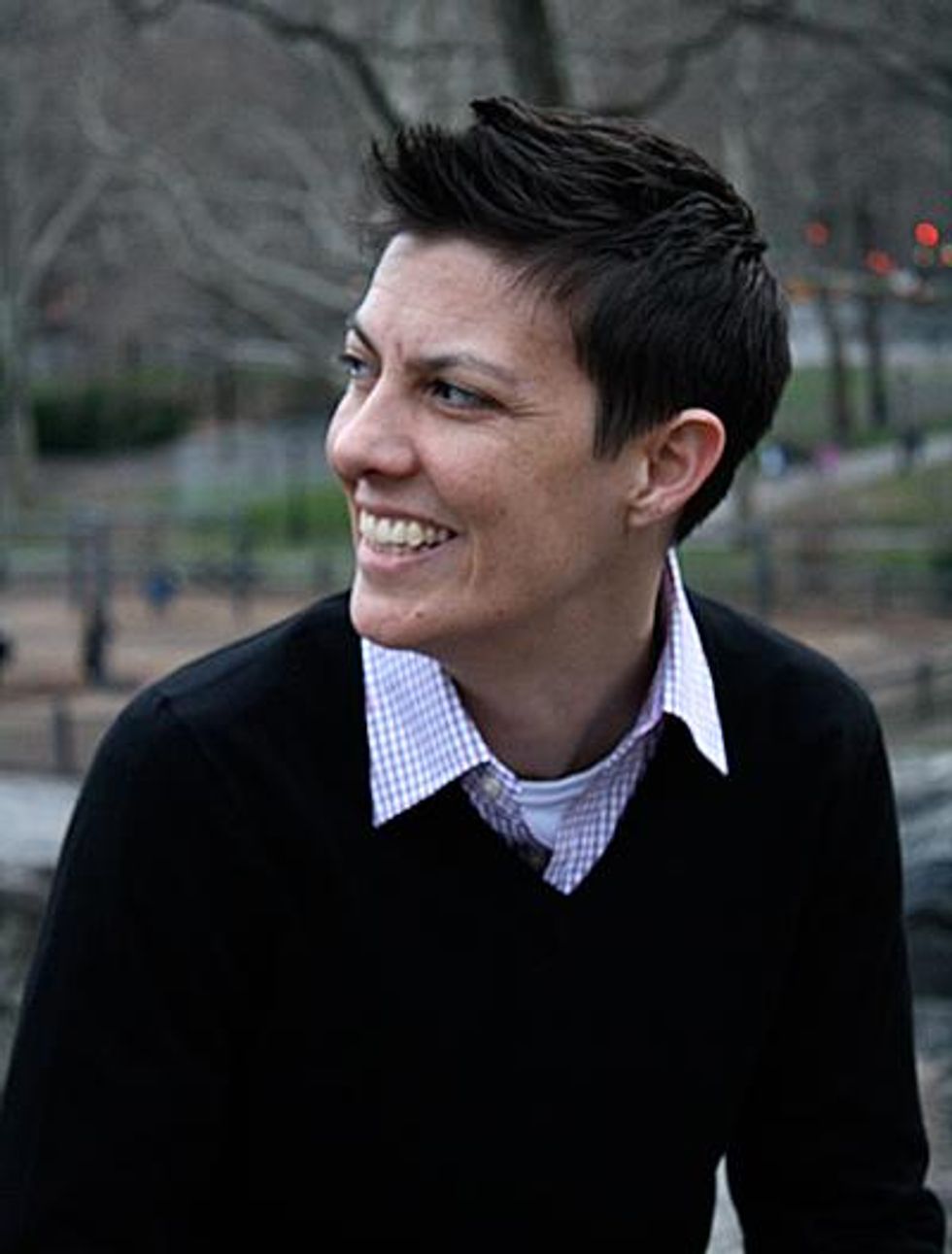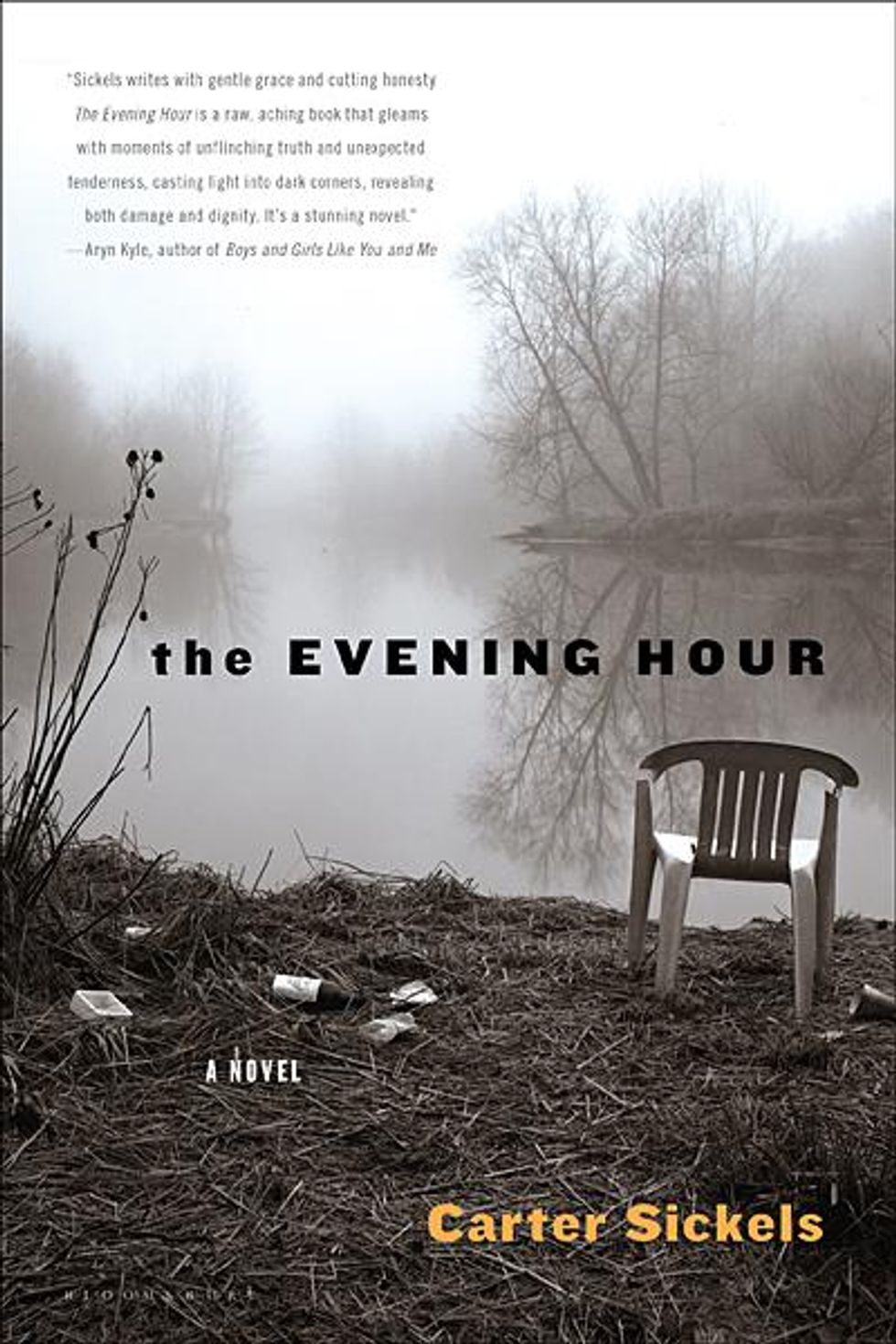
Transgender author Carter Sickels is making waves in the literary community with his powerful storytelling that resists the temptation to make precious the hardships in rural Southern America.
November 09 2012 7:00 AM EST
sunnivie
By continuing to use our site, you agree to our Privacy Policy and Terms of Use.


Sickels' ability to create insightful, tender and profoundly human characters shines through in his short story "Saving," featured in The Collection: Short Fiction from the Transgender Vanguard, now available through Topside Press. The characters in "Saving," a trans man and his cisgender girlfriend who travel to the rural south to pack away his dead grandmother's home, are flawed and messy, both finding themselves in a setting -- and relationship -- that no longer feels right. "Saving" holds its own against an impressive gathering of short fiction from 28 trans authors and emerges as one of the most honest and universal stories in The Collection. We caught up with Sickels, who identifies as a gay trans man, to pick his brain on character development, queer identity, and what he would have said to his younger self.
The Advocate: Both The Evening Hour and "Saving" create powerful landscapes set in rural southern America. Is that the environment you grew up in? Where were you born and raised?
Carter Sickels: I grew up in central Ohio, actually. My grandparents and most of my family are from southeastern Ohio, not far from West Virginia, where The Evening Hour takes place. Much of the culture and the socio-economic landscape in that part of Ohio is very similar to West Virginia.
You received a good deal of praise for your earnest portrayal of rural Appalachia in The Evening Hour, some critics saying you stripped away the rural romance that often clouds these stories. What drove you to write so honestly about this locale, decimated by mountaintop removal and corporate, economic, and social exploitation?
I initially thought I would set the novel in Ohio, but then I learned about mountaintop removal coal mining, and the novel grew from there. I visited West Virginia to learn more about MTR -- I was living in New York at the time -- and I met people who were fighting for their homes, their land. The extent to which MTR has devastated the Appalachian landscape, and ruined people's homes and threatened their heritage, is shocking. I couldn't get the place out of my head.
I wanted to write about West Virginia in an honest way, in a way that didn't resort to easy stereotypes or generalizations, but also didn't shy away from some of the harder, darker parts in rural America.
I must commend you on your staggering ability to create real, multidimensional characters in your writing. What is the key to connecting with readers through the creation of compelling, relatable characters?
Thank you. Characters usually come first to me, and then develop and grow through the writing and rewriting. In the case of Cole, in The Evening Hour, he's complicated in the way he cares for so many people, yet he also steals from the people he loves, and sells drugs into a devastated community. I think if you're creating compelling characters, then readers will connect, even if their own lives are extremely different. Maybe the character makes mistakes but has good intentions, which resonates for the reader, or maybe it's the character's vulnerability or shame that the reader can empathize and identify with -- all the contradictions and faults and moments of beauty and grace that make us human need to be present in fictional characters as well.

I think for any young writer, it's important to keep writing, despite the outside voices that might be undermining or censoring or doubting your work. I would also say, write the story that you want to read. Write the story that you haven't yet read.
And, in terms of honing your craft, you'll learn by reading. That's the most important thing you can do if you want to become a better writer. Read everything.
Do you identify as queer? If so, why does that label feel appropriate to you?
Yeah, I identify as queer. For me personally, as a trans person, it seems impossible not to identify as queer. Queer is the more progressive and inclusive label, and also has a more political angle -- to be queer is to not fit in the norms created by a heterosexist, patriarchal culture, and to call into question those norms. Queer is one part of my identity. I also identify as a gay man, and as trans.
The Collection is among the first of its kind, featuring exclusively trans-identified authors. Why do you think it's important to include trans voices in the the larger literary canon?
It's absolutely important that trans voices be included in the canon, along with people of color, queers, and women, who are also underrepresented. I feel honored to be in this collection, which is really the first of its kind. Topside Press is doing really important work in publishing narratives that are both trans and literary. There aren't a lot of published trans authors or stories about trans characters out there right now - especially in literary fiction.
The complexity and diversity of gender identity and sexuality is something that should be explored and portrayed in literary fiction. These are voices that are all too often marginalized or melded into a single story. There isn't just one trans experience or narrative, and I think The Collection shows this wide range of diversity.
It's also important to publish more fiction with trans characters because transgender people want to see some part of their lives and worlds reflected in fiction, and not only that, but good fiction invites others -- who are not trans, who live different lives -- to share in these experiences, to be moved by them.
Why did you decide to include "Saving" in The Collection? Did you write the story specifically for the book, or was this a story you'd already been drafting?
"Saving" was actually a story I started several years ago, before I had really started identifying as trans. The story went through many drafts and revisions. I wasn't sure what was next for it, then I read about the call for submissions to Topside Press, so it was fortuitous timing. It's a great home for the story.
The Evening Hour is an impressive introductory work, and has deservedly garnered rave reviews. What's next for you as an author?
Thank you. That's the million dollar question. I've been working on a few different projects. I've been writing some short nonfiction pieces about my experience as a gay trans man, and more recently, I've been putting my energy into a new novel. Right now, it's so early in the game that I'm a little superstitious about describing it. But it feels great to be starting something new.
ABOUT THE AUTHOR
Carter Sickles is a graduate of the MFA program at Pennsylvania State University, was awarded fellowships to Bread Loaf Writers' Conference, the Sewanee Writers' Conference, the MacDowell Colony, VCCA, and the Djerassi Residency. After spending nearly a decade in New York, Sickles left the city to earn a master's degree in folklore ta the University of North Carolina at Chapel Hill. He lives in Portland, Oregon, with his partner, Jose. His first book, The Evening Hour, is available through Bloomsbury Publishing.
Discover Sickles' way with words, along with 27 other contemporary transgender authors, in The Collection: Short Fiction from the Transgender Vanguard, edited by Tom Leger and Riley MacLeod and now available through Topside Press.
Charlie Kirk DID say stoning gay people was the 'perfect law' — and these other heinous quotes